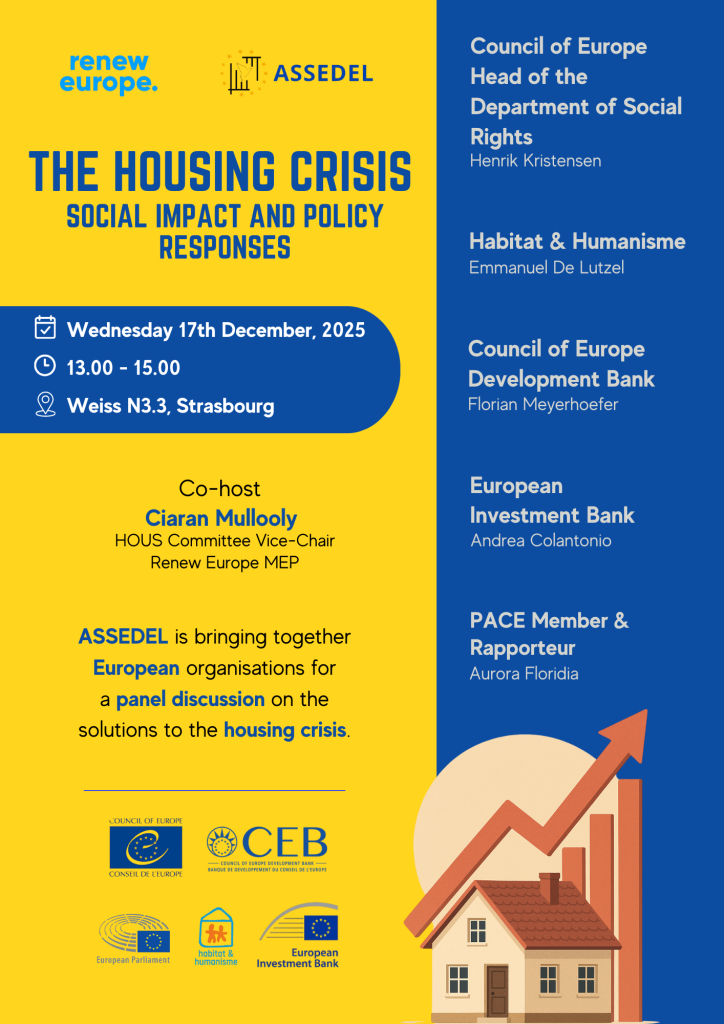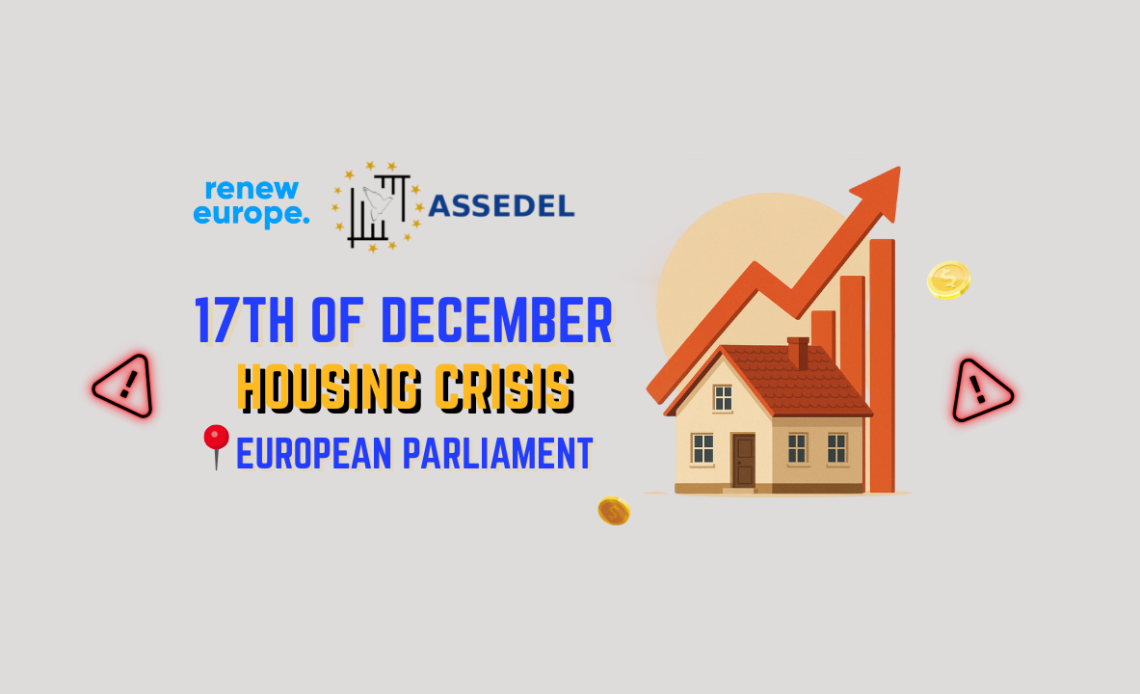Across the European Union, access to affordable housing has become one of the most pressing social challenges of the past decade. Rising living costs, demographic pressures and limitations in housing supply are contributing to a situation where an increasing number of people struggle to secure a stable home. This article offers an introduction to the housing crisis in Europe and its links to human rights. ASSEDEL considers the growing challenges in access to adequate housing to be a matter of serious concern, consistent with our mission to advance human rights and social justice. In response, we are organising a focused discussion in the European Parliament this December.
What do we mean by a “housing crisis”?
Across the European Union, the term “housing crisis” describes a combination of structural pressures affecting both the availability of housing and its affordability. For instance, over the last 15 years average house prices in the EU increased by approximately 57.9%, while rents rose by around 27.8% (Eurostat, 2025). In 2023, about 16% of the EU-27 population lived in overcrowded households lacking sufficient rooms for the number of persons (European Commission, 2025). Growing urbanisation, mobility for work or study, ageing populations, and changing household sizes all place new demands on housing markets.
Housing as a human right
Housing is not only a market commodity, but it is also recognised as a basic human need and a fundamental right. Article 34 of the EU Charter of Fundamental Rights acknowledges the right to social and housing assistance for those in need (European Union, 2012). International frameworks, such as the UN International Covenant on Economic, Social and Cultural Rights, underline the right to adequate housing for all (UN Committee on Economic, Social and Cultural Rights, 1991). In human rights terms, “adequate housing” includes habitability, affordability, accessibility, security, non-discrimination, and the ability to live in dignity.
While the housing crisis affects a diverse range of groups, certain population groups remain more vulnerable (OECD, 2023). Usually, these are young people entering the labour market, families with low or unstable incomes, people in temporary or seasonal employment, older persons living on fixed incomes, or migrants and mobile EU citizens navigating new housing markets.
Why this discussion matters
The housing crisis cuts across economic, social, and human rights dimensions. Stable and affordable housing is essential for access to employment, education, health services, and community life. When people cannot afford a home, are forced into substandard conditions, or face the risk of homelessness, their ability to exercise other rights is also constrained. For this reason, ongoing dialogue between policymakers, civil society, academics, service providers, and affected communities is crucial. Understanding the drivers of the current crisis, as well as its human rights implications, provides essential context for constructive debate. As we prepare for our informed discussion in the European Parliament this December, our goal is to encourage informed discussion and contribute to a broader effort to ensure that everyone in Europe has access to adequate and affordable housing.
Be part of the conversation on housing and human rights. Register now to attend our event in the European Parliament: https://luma.com/5xu7h9ul
Sources
Eurostat, 2025. House prices and rents continue to rise in early 2025. Available here
European Commission, 2025. Living conditions in Europe – housing. Available here
European Union, 2012. Charter of fundamental human rights of the European Union. Available here
UN Committee on Economic, Social and Cultural Rights, 1991. Available here
OECD. (2023). Brick by Brick: Better Housing Policies in the EU. Available here


